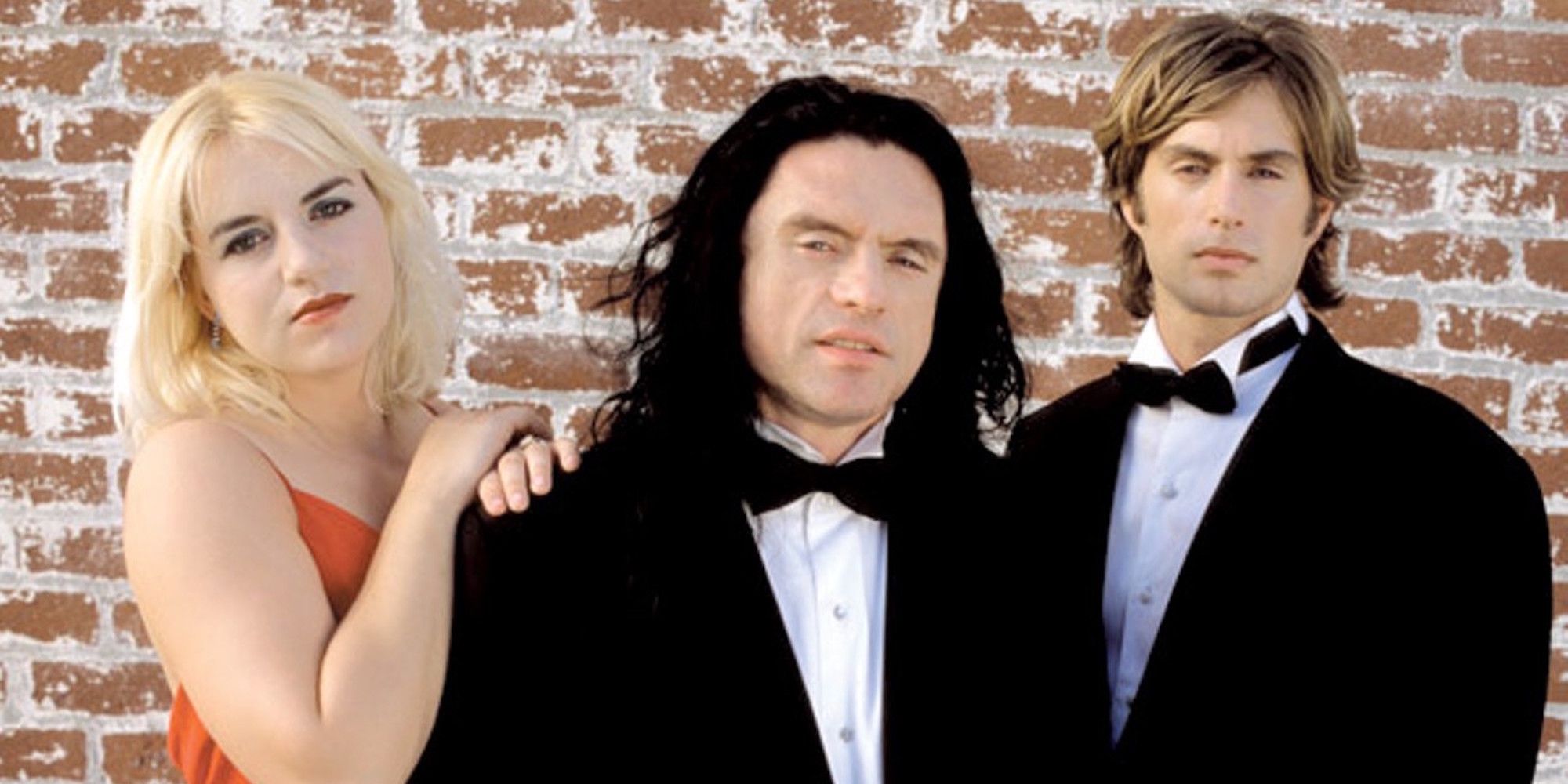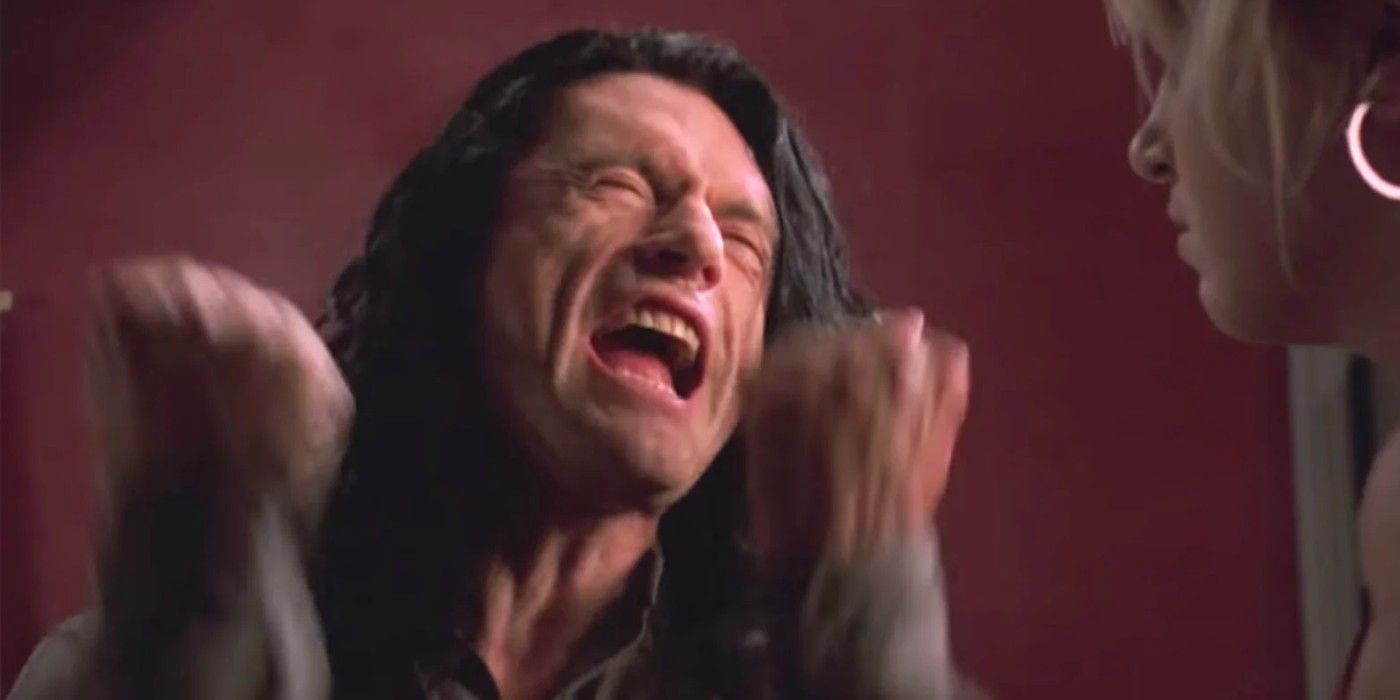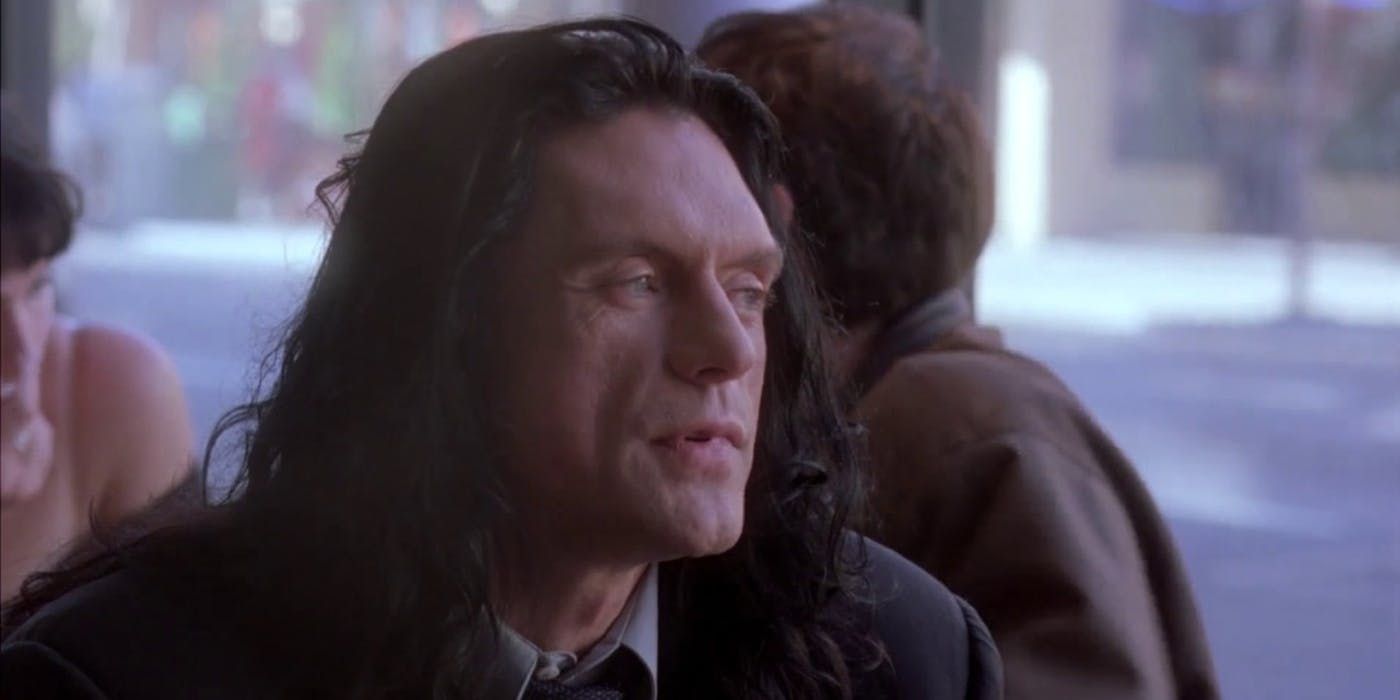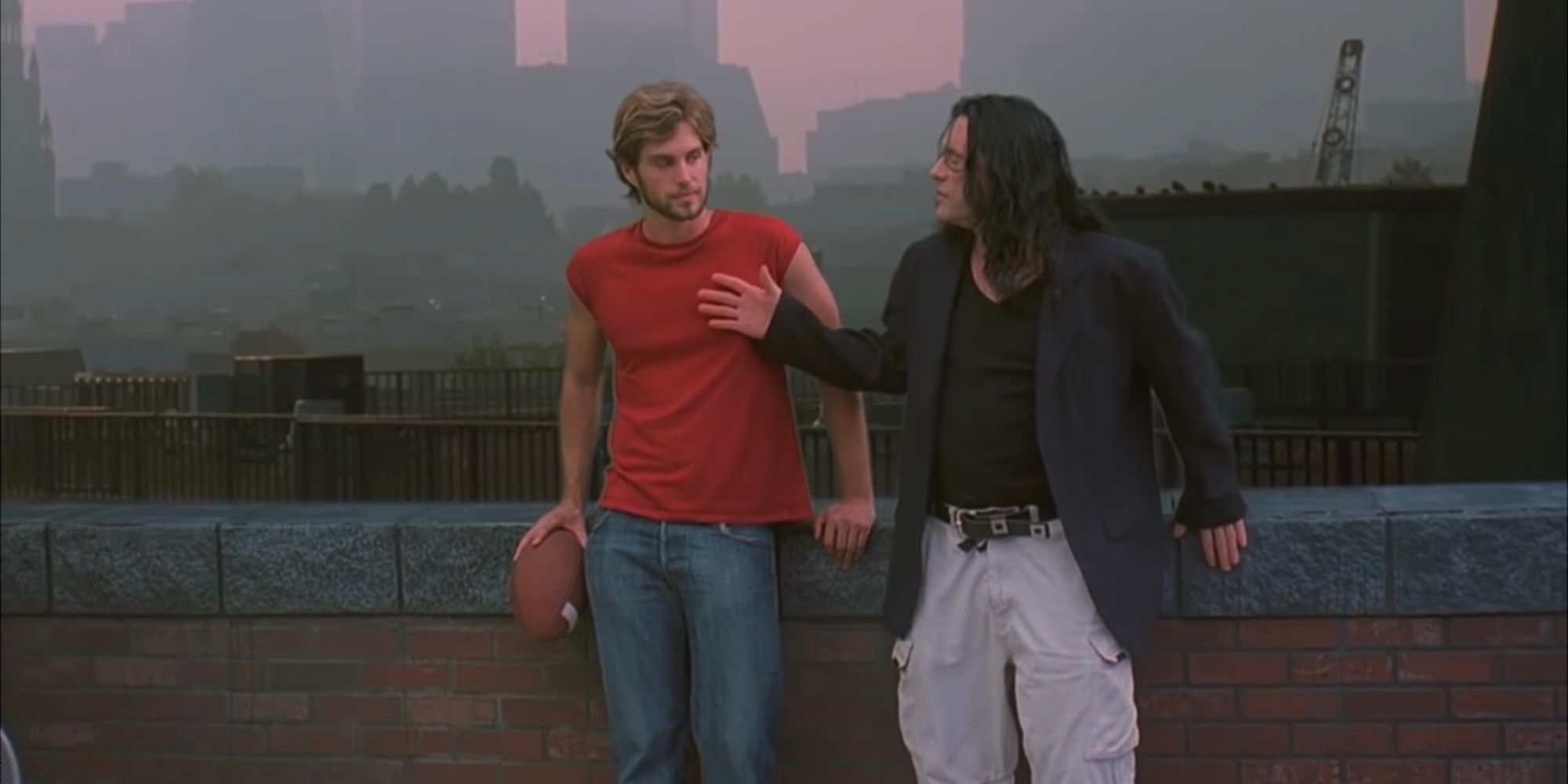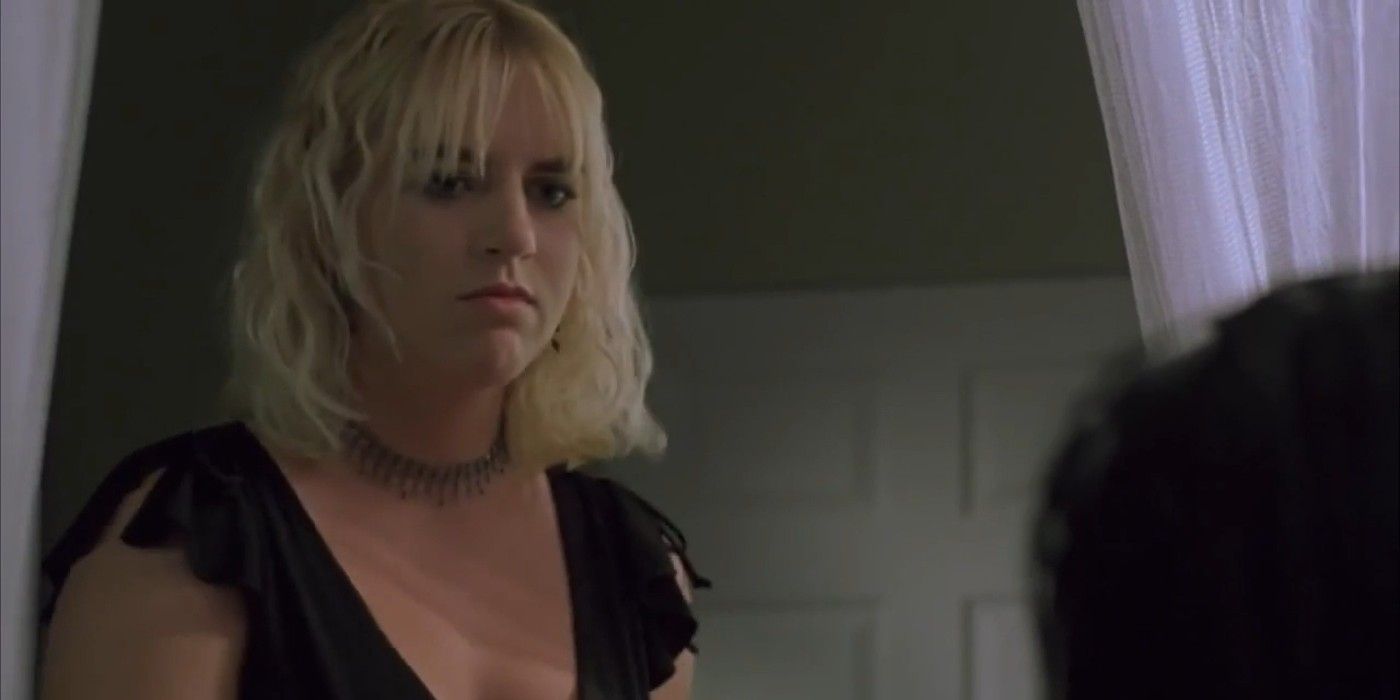Movies are made to provoke an emotion in audiences, and the best can elicit a strong emotional reaction that lasts even after the film ends. Some, like The Shawshank Redemption and Coco, do so for the right reasons, but others create a visceral reaction for the wrong reasons. And some movies can't be contextualized or even described but become loved in a bizarre way. These films are known for being "so bad, it's good."
For a film to be so bad that it's good, it has to miss the emotional reaction so badly that it becomes entertaining. Movies like Plan 9 From Outer Space are legendary in their subpar quality and subsequent comedy. The dramatic or horrific moments built on purpose become so unintentionally funny that they become loved and revered for it. Of these films, no movie has had the run or the legacy built around it quite like the 2003 ironic classic known simply as The Room.
Written, starring, and directed by Tommy Wiseau, The Room is a romantic melodrama about a Banker named Johnny who finds out his fiancée, Lisa, is cheating on him with his best friend, Mark. Johnny is portrayed as saint-like during his run time, which is in stark contrast to Lisa, who is incredibly manipulating and cruel. Mark tends to play to both sides as he claims loyalty to Johnny while continuing his relationship with Lisa behind his back. When their relationship is revealed in the climax, an emotionally destroyed Johnny takes his own life, and the film ends. The movie sounds like a standard drama, but the beauty is in its plotting.
As dramatic as the movie is described to be, it hilariously misses its own marks. The way the dialogue is written makes any attempt at chemistry moot, as the lines are too direct and choppy. This creates a surreal environment where characters aren't discrete in their actions and takes away from the drama. The almost robotic writing, in combination with the actors making the most of their personalities, makes what should be a dramatic reveal into a comical experience. What makes this even more entertaining is that even though they're direct, every other character is completely oblivious to anything until the film's climax.
By far, the most hilarious thing about The Room is its pacing and structure. Though the movie features a story that should be easy to follow, scenes and plot lines start and stop out of nowhere, characters will enter the plot without any introduction, and scenes that interject the narrative litter the film. These moments are so jarring that it distracts from the overall pacing. After hearing key moments discussed, the movie will immediately follow it with a random scene where characters will enter Johnny's apartment or a football sequence. In one particularly odd scene, one of the younger characters, Denny, plays basketball on the roof when a drug dealer confronts him. This plot point never returns to the story. These moments add to the movie's unintentional brilliance because it has an avant-garde presentation.
Among the film's many odd factors, none come close to The Room's quixotic writer/director Tommy Wiseau, who also stars as Johnny. Johnny is, to say the least, the highlight of the movie. His character is presented as an all-around great guy, which his character is, but Tommy's portrayal makes the film legendary. From the get-go, several of Johnny's lines are dubbed over with minimal effort to match the dialogue to his mouth. He's often too understanding, even after finding out Lisa was unfaithful. These moments made the final freakout and his death even more out of place, which comes across as hilarious as opposed to heart-wrenching.
Though characters and pacing are the highlights, the production is just as hilarious. The camera is in and out of focus for the majority of the picture, which makes sense considering the movie used two different styles of camera simultaneously. The film set is incomplete and looks like a set in the worst possible way. By far the most bizarre is a framed picture of a spoon that is proudly displayed in one of the most highly trafficked parts of the set. There are numerous cut scenes of a random neighborhood and the Golden Gate Bridge that do nothing but establish that the movie is set in San Francisco. These are a few of the many scenes that pack the film. With a plethora of odd choices, why is a movie this bizarre celebrated? Because there is nothing else like it.
Any one of these specific choices could make the film bad, but the combination of everything together makes it one of the most hilarious and cathartic viewing experiences in cinema. As bad as the choices are, every single one of them is deliberate in the movie. The dialogue, pacing, and "twists," such as Lisa's mom having cancer and never talking about it again, were written specifically to film. Even more bizarre is the script, in which there was a subplot about Johnny being a vampire with a flying car. Everything that should be bad about this movie fits perfectly into place.
These choices are especially highlighted by audiences, who have made live viewings into a performance similar to The Rocky Horror Picture Show. Fans will flock to underground showings dressed as characters in The Room, play football in the theater, and shout random quotes at the screen. Among the most popular of these traditions is the throwing of spoons when the framed spoon enters the frame. Audiences have added other major traditions to the film, some of which have been accepted by its stars.
When The Room was created, it was envisioned as a great drama akin to Rebel Without a Cause, which is quoted in the film, and was submitted for Oscar contention. Though it didn't reach that level, it is widely regarded as the Citizen Kane of bad movies. It is this distinction that makes the movie legendary, not just in quality but in legacy. Despite all the choices and shortcomings, it is widely celebrated and enjoyed nearly 20 years later, and great books and films have been made discussing it. The Room wasn't meant to be critically acclaimed; it was meant to be enjoyed and to elicit an emotional response. Isn't that the purpose of movies?

